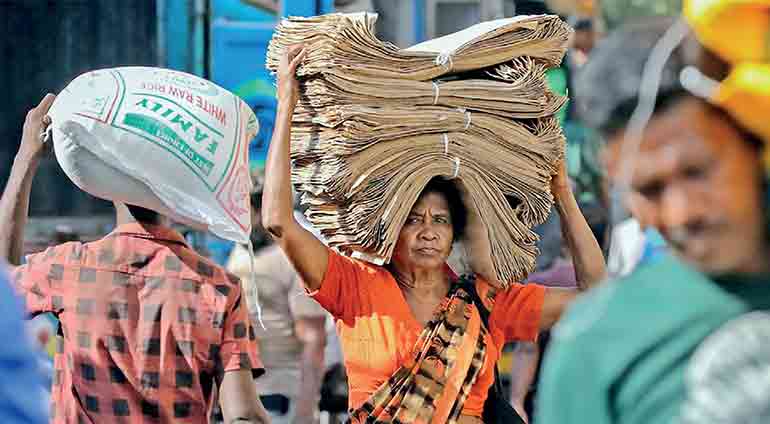Foreign investors, particularly in sectors like apparel, electronics, and tourism, often require initial tax concessions to justify the risks of operating in a struggling economy. By removing these incentives, the IMF discourages the very investments that could generate the foreign exchange needed to repay loans. This creates a paradox:
- IMF demands higher taxes → Investors avoid Sri Lanka →Exports stagnate →Foreign exchange shortages persist → Debt repayment becomes harder → Sri Lanka needs another IMF bailout
This cycle entrenches dependency rather than fostering self-sufficiency.
Alternative approaches: Learning from successful models
Countries like China, Vietnam, and Mauritius have used targeted tax incentives to attract export-oriented industries, gradually building strong manufacturing bases that generate foreign exchange. Sri Lanka could follow a similar path if allowed flexibility in its fiscal policy.
Instead of rigid austerity, the IMF should permit:
- Phased tax holidays for export-oriented FDI to stimulate job creation and forex earnings.
- Gradual tax reforms that balance revenue needs with investment incentives.
- Support for public-private partnerships in infrastructure and industry to boost productivity.
Tax concessions in South and Southeast Asia: A competitive edge for investors
Unlike Sri Lanka, many South and Southeast Asian economies actively use tax incentives to attract foreign direct investment (FDI) and boost exports. Below are key examples:
1.Vietnam
- Corporate tax holidays: New manufacturing and high-tech projects enjoy 0% tax for the first 4 years, followed by 50% reduction for the next 9 years.
- Export-oriented industries: Preferential tax rates (10% instead of the standard 20%) for businesses in special economic zones (SEZs).
- Import duty exemptions: No import taxes on raw materials for export production.
2. Bangladesh
- Tax exemptions for exporters: Ready-made garment (RMG) and textile exporters enjoy 10-12 years of tax-free status under the Export Processing Zones (EPZs).
- Reduced corporate tax: 10-12% for export-oriented industries vs. 30% for regular businesses.
- Duty-free import of capital machinery: Essential for industrial expansion.
3. Cambodia
- Tax holiday period: Up to 9 years for Qualified Investment Projects (QIPs) in priority sectors.
- 20% corporate tax exemption: For firms exporting at least 80% of production.
- VAT exemptions: For businesses in Special Economic Zones (SEZs).
4.Thailand
- Board of Investment (BOI) benefits: Up to 8 years of corporate tax exemption for targeted industries like automotive and electronics.
- Reduced import duties: For machinery and raw materials in promoted sectors.
- Additional incentives: R&D tax deductions and location-based incentives.
5. India
- Special Economic Zones (SEZs): 100% tax exemption for the first 5 years, 50% for the next 5, and 50% ploughed-back profits for another 5 years.
- Production-Linked Incentives (PLI)
Tax rebates in electronics, pharmaceuticals, and renewable energy sectors.
IMF conditionalities and the tax holiday dilemma in Sri Lanka
While neighbouring countries use tax incentives to attract investment, Sri Lanka’s IMF-mandated fiscal policies restrict such measures, making it less competitive. The IMF insists on:
- Higher corporate tax rates (from 14% to 30% in recent years).
- Elimination of tax holidays for foreign and domestic investors.
- Strict revenue targets that discourage concessions for export industries.
This rigid approach ignores the fact that tax incentives are a proven tool for FDI-driven growth in emerging economies. Without them, Sri Lanka struggles to compete with regional rivals like Vietnam and Bangladesh, which offer far more attractive terms.
Alternative approaches: Strategic tax policies for growth
Instead of rigid austerity, Sri Lanka should negotiate for:
- Phased tax holidays for export-oriented FDI (5-10 years, as in Vietnam and Bangladesh).
- Lower corporate taxes for priority sectors (e.g., apparel, tourism, IT).
- Special Economic Zones (SEZs) with duty exemptions to attract manufacturers.
Conclusion: IMF must allow growth-friendly reforms
The IMF’s one-size-fits-all austerity model is failing Sri Lanka. To escape the debt trap, the country must be allowed to offer competitive tax incentives, just like its regional peers. Otherwise, the economy will remain stuck in low growth, high debt, and perpetual IMF dependency.
The way forward
- Reform IMF conditions to allow strategic tax breaks for export industries.
- Learn from Vietnam, Bangladesh, and Cambodia—use tax incentives to attract FDI.
- Balance fiscal discipline with growth policies—austerity alone cannot solve debt crises. Without these changes, Sri Lanka’s economic recovery will remain out of reach.
 To escape the debt trap, the country must be allowed to offer competitive tax incentives, just like its regional peers
To escape the debt trap, the country must be allowed to offer competitive tax incentives, just like its regional peers
 Sri Lanka’s economic crisis has been exacerbated by its reliance on International Monetary Fund (IMF) bailout packages, which come with stringent conditions that often undermine long-term growth. One of the most damaging aspects of IMF-imposed austerity is the restriction on tax incentives, including tax holidays for foreign and local investors. By preventing the Government from offering competitive tax breaks, the IMF effectively discourages investment in export-oriented industries—precisely the sectors Sri Lanka needs to generate foreign exchange and repay its debts. This creates a vicious cycle: without investment, the economy stagnates, debt becomes unsustainable, and the country remains trapped in perpetual dependency on IMF loans.
Sri Lanka’s economic crisis has been exacerbated by its reliance on International Monetary Fund (IMF) bailout packages, which come with stringent conditions that often undermine long-term growth. One of the most damaging aspects of IMF-imposed austerity is the restriction on tax incentives, including tax holidays for foreign and local investors. By preventing the Government from offering competitive tax breaks, the IMF effectively discourages investment in export-oriented industries—precisely the sectors Sri Lanka needs to generate foreign exchange and repay its debts. This creates a vicious cycle: without investment, the economy stagnates, debt becomes unsustainable, and the country remains trapped in perpetual dependency on IMF loans.